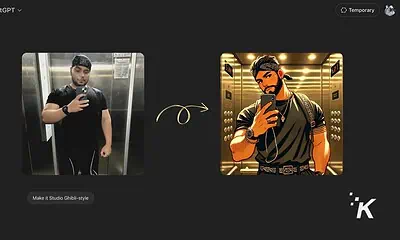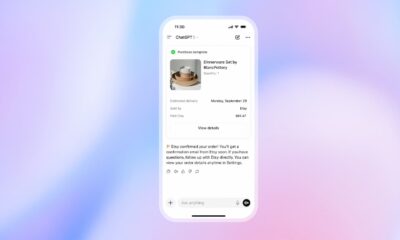ChatGPT
People use ChatGPT 2.5 billion times a day for boring stuff
The study says 42% of work-related chats are about writing, and if you’re in management or business, that number jumps to over 50%.

Just a heads up, if you buy something through our links, we may get a small share of the sale. It’s one of the ways we keep the lights on here. Click here for more.
OpenAI has just dropped its biggest peek yet into how the world is actually using ChatGPT, and spoiler alert, it’s less “falling in love with your chatbot” and more “please help me write this email before my boss notices.”
In a paper co-authored with Harvard economist David Deming, OpenAI’s Economic Research team analyzed a cool 1.5 million ChatGPT conversations to figure out what people are really doing with it.
The headline stat: as of July 2025, ChatGPT has 700 million users, pumping out 18 billion messages per week (that’s about 2.5 billion per day). The verdict? People are mostly here for work.
The study says 42% of work-related chats are about writing, and if you’re in management or business, that number jumps to over half. (Via: Digital Trends)
Basically, ChatGPT is the intern who doesn’t complain when you dump your quarterly report on them.
The next biggest buckets are “practical guidance” and “seeking information,” which together make up nearly 80% of conversations.
Some myths got busted along the way. Despite endless debates about AI replacing coders, only 4.2% of chats were about programming.
Meanwhile, the juicy stuff: personal confessions, relationships, late-night oversharing, barely cracked 1.9%.
And the whole “people pouring their hearts out to ChatGPT” narrative? Turns out just 1% of chats were users simply expressing themselves. (So yes, the romantics seem to be hanging out on CharacterAI or Replika instead.)
The demographics are shifting, too. Early adopters skewed male, but the paper says the gender gap has flipped, with more than half of users now sporting female names.
Nearly half of ChatGPT’s audience is under 26, making it the most overworked Gen Z teaching assistant ever.
And while the headlines lately have focused on safety concerns, think parental controls and warnings after a few high-profile AI incidents, the bulk of usage looks downright boring.
People just want advice, structure, and maybe a nicely worded paragraph or two.
So no, ChatGPT isn’t replacing your therapist or your coding job (yet). But it might just keep your inbox from exploding.
Does ChatGPT’s dominance in workplace writing tasks signal genuine productivity gains, or are we becoming overly dependent on AI for basic communication skills? Should we be concerned that 2.5 billion daily ChatGPT interactions represent a fundamental shift in how humans process information, or is this just the natural evolution of digital tools? Tell us below in the comments, or reach us via our Twitter or Facebook.



























